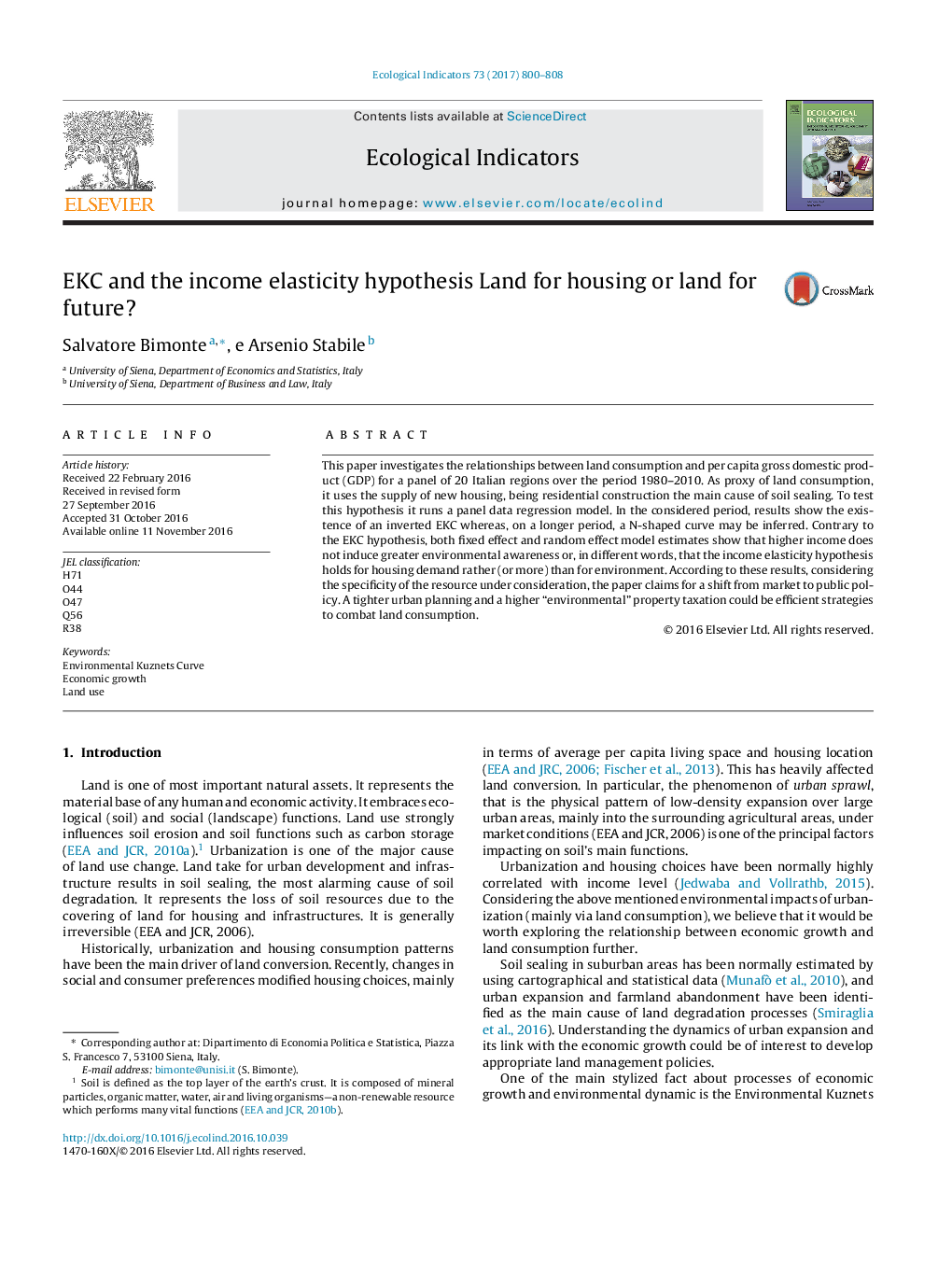| Article ID | Journal | Published Year | Pages | File Type |
|---|---|---|---|---|
| 6292702 | Ecological Indicators | 2017 | 9 Pages |
Abstract
This paper investigates the relationships between land consumption and per capita gross domestic product (GDP) for a panel of 20 Italian regions over the period 1980-2010. As proxy of land consumption, it uses the supply of new housing, being residential construction the main cause of soil sealing. To test this hypothesis it runs a panel data regression model. In the considered period, results show the existence of an inverted EKC whereas, on a longer period, a N-shaped curve may be inferred. Contrary to the EKC hypothesis, both fixed effect and random effect model estimates show that higher income does not induce greater environmental awareness or, in different words, that the income elasticity hypothesis holds for housing demand rather (or more) than for environment. According to these results, considering the specificity of the resource under consideration, the paper claims for a shift from market to public policy. A tighter urban planning and a higher “environmental” property taxation could be efficient strategies to combat land consumption.
Related Topics
Life Sciences
Agricultural and Biological Sciences
Ecology, Evolution, Behavior and Systematics
Authors
Salvatore Bimonte, e Arsenio Stabile,
